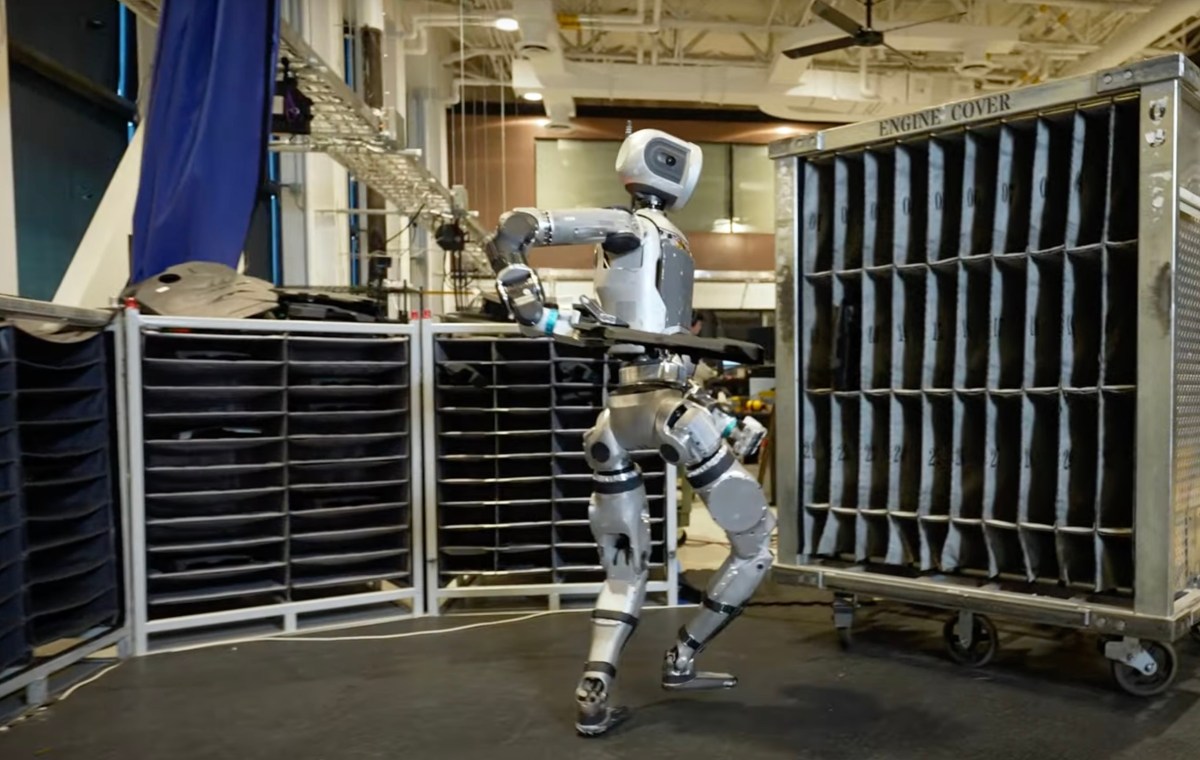Boston Dynamics’ new humanoid has been quietly improving by leaps and bounds behind the scenes. Announced in April, we caught some brief insight into the electric Atlas’ strength in August through a video of the robot doing pushups. The latest video, released Wednesday, showcases the robot doing work in a demo space, moving engine parts between bins.
Boston Dynamics is quick to note that the actions are being performed autonomously, without “prescribed or teleoperated movements.” That caveat is seemingly a bit of shade tossed at other humanoid demos that have been misleading in a bid to capture online attention.
The video arrives two weeks after the Hyundai-owned robotics firm announced a watershed deal with the Toyota Research Institute. It’s not clear how much of the three-minute video is a product of that partnership, which brings TRI’s impressive robotics learning and real-time adaptations to the platform.
Boston Dynamics notes, “The robot is able to detect and react to changes in the environment (e.g., moving fixtures) and action failures (e.g., failure to insert the cover, tripping, environment collision) using a combination of vision, force, and proprioceptive sensors.”
As with competitors like Figure, Tesla, and Apptronik, Boston Dynamics’ first applications for the bipedal robot include work in automotive factories. The focus makes a lot of sense, given that the firm is now owned by Hyundai, which has opted to do a deal with Toyota’s research wing. Automotive has also been well ahead of the automation curve for decades now.
In addition to the autonomously executed tasks, the video showcases impressive adaptive — and strong — actuators, as the robot pivots at its waist. The action minimizes movements, saving precious seconds in the process.

